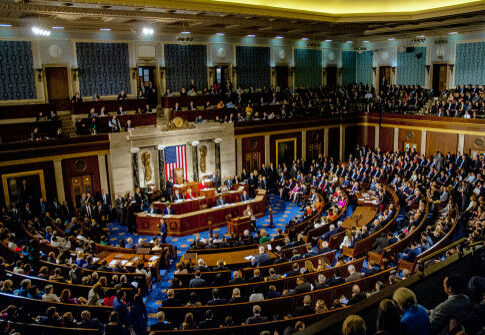Four Republicans break ranks to protect Ilhan Omar from censure after inflammatory remarks about a slain conservative, exposing deep fractures in Congress and raising urgent questions about free speech, partisan discipline, and the boundaries of constitutional accountability.
House Vote Reveals Sharp Divisions Over Speech and Accountability
On September 17, 2025, the U.S. House of Representatives voted 214–213 to table a resolution that would have censured Rep. Ilhan Omar following her controversial comments about the assassination of conservative activist Charlie Kirk. The resolution, introduced by Rep. Nancy Mace, also sought to remove Omar from the Education and the Workforce Committee and the Budget Committee. Four Republicans—Cory Mills, Jeff Hurd, Tom McClintock, and Mike Flood—joined all Democrats in blocking the measure. This vote brought to the surface deep ideological divides about the boundaries of acceptable speech and the appropriate use of congressional discipline.
The roots of this dispute trace back to September 12, when Charlie Kirk, a prominent conservative voice, was assassinated. In the days that followed, emotions ran high as both the public and politicians reacted. On September 15, Rep. Omar made remarks in a Zeteo interview and on social media that many conservatives interpreted as inflammatory, accusing some on the right of exploiting Kirk’s death for political gain. Rep. Mace, known for her confrontational stance in defense of conservative values, responded by introducing a censure resolution to hold Omar accountable for what she and her supporters saw as conduct unbecoming a member of Congress.
Constitutional Principles Collide with Partisan Strategies
The failed censure attempt has reignited debate over the First Amendment’s protection of speech—even when that speech offends or outrages. Rep. Tom McClintock, a Republican who opposed the censure, called Omar’s comments “disgusting and hateful” but argued that they did not violate House rules and were protected by the Constitution. This stance highlights tensions within the Republican caucus: while many demanded a strong response against what they see as a persistent pattern of leftist overreach and disrespect for conservative figures, others worried that weaponizing censure could undermine core American freedoms and set a dangerous precedent for policing political speech.
Democratic leadership framed the censure attempt as naked political retribution, while Omar herself accused Rep. Mace of manufacturing outrage for personal and partisan gain. The episode has become a flashpoint, not just between parties but within them, as lawmakers wrestle with the limits of discipline and the risks of normalizing punitive measures for controversial—but legally protected—statements.
Impact on Congress, Conservative Values, and the Future of Censure
The House’s razor-thin vote to shelve the censure motion leaves the controversy unresolved and signals a broader erosion of bipartisan cooperation and respect for tradition in Congress. For conservatives, the outcome is deeply frustrating: a member who made inflammatory remarks about a murdered activist escapes accountability, in part because some Republicans chose constitutional purity over party unity. This dynamic fuels ongoing concerns about the left’s perceived disregard for American values, the emboldening of radical voices, and the weakening of mechanisms to enforce standards in public office.
In the short term, the controversy has heightened polarization and intensified scrutiny of congressional speech. Over the long term, it could encourage more frequent—and more partisan—censure attempts, further degrading the process and making it harder to distinguish serious misconduct from political grandstanding. As legal experts note, robust debate and even heated rhetoric are essential to democracy, but so is the defense of order, respect, and the rule of law within the nation’s highest legislative body.
House Rejects Bid To Censure Rep. Ilhan Omar Over Charlie Kirk Comments https://t.co/tIZKpP8af4
— zerohedge (@zerohedge) September 18, 2025
While no direct economic impact is anticipated, the social and political ramifications are significant. The incident will likely influence future debates about congressional discipline, trust in government, and the rights of elected officials to speak freely—especially when their words strike at the heart of national divides over family, tradition, and American identity.
Sources:
US House of Representatives declines to censure Rep. Ilhan Omar over comments about Kirk death
House turns back effort to censure Rep. Ilhan Omar
House turns back effort to censure Rep. Ilhan Omar over remarks about Charlie Kirk


We the people want her gone.
Those 4 Republicans need to be replaced as soon as possible.
Thisex4 Republicans need to be replaced!